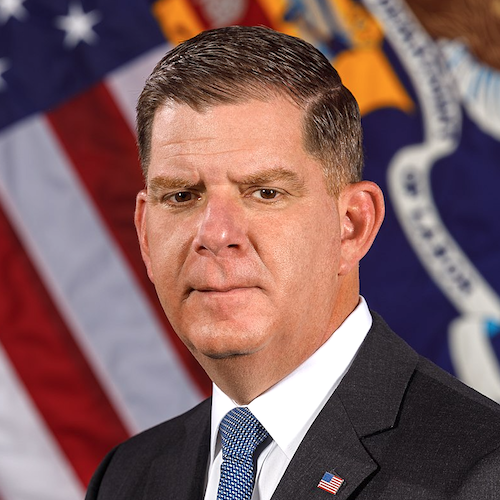

The Department of Labor will beef up its Nursing Expansion Grant Program with $80 million in grants, the department announced Monday.
“The funding covers nursing at all levels, including ‘paraprofessional’ staff like [certified nursing assistants], so grant recipients can target the funding to the areas of greatest need,” the American Health Care Association / National Center for Assisted Living told the McKnight’s Business Daily. “The funding covers recruitment and retention efforts as well, which is important to consider as we look at longer term solutions. This is a great way to build partnerships to develop the continuum of staff in our settings.”
AHCA / NCAL called the funding “welcome news,” but added that “much more is still needed to address the nationwide nursing shortage and specifically, the long-term care labor crisis.
The US Bureau of Labor Statistics projects that more than 275,000 additional nurses will be needed from 2020 to 2030 and that employment opportunities for nurses will grow at 9%, faster than all other occupations from 2016 through 2026.
“Demand for aging services help currently far outstrips workforce supply, and based on projected population growth, that imbalance will continue unless swift and consistent action is taken,” a spokesperson for LeadingAge told the McKnight’s Business Daily.
The association noted that “member responses to a June 2022 LeadingAge Snap Poll on Workforce showed that providers across the continuum noted nursing positions are especially difficult to fill. Asked to rate the difficulty in recruiting staff, registered nurses had a weighted average of 4.38% (5 being great difficulty); licensed practical nurses, 4.28% and [certified nursing assistants], 4.4%.”
Administered by the Labor Department’s Employment and Training Administration, the H-1B Skills Training Grants emphasize training people from historically marginalized and underrepresented populations to bring greater employment equity in underserved communities. Additionally, the grants are meant to address barriers to becoming nurses and boost the pipeline of new nurses in the field.
“The funding opportunity announced today will support training and other programs to help advance workforce equity while bringing more nurses into the industry,” Secretary of Labor Marty Walsh said in a press release Monday.
According to the Employment and Training Administration,the Nursing Enhancement Grant Program will address two separate groups.
The Nurse Education Professional Track will increase the number of clinical and vocational nursing instructors and educators by training new or upskilling experienced current or former nurses (including retired nurses) into advanced postsecondary credentialing necessary for nurses to become clinical and vocational nursing instructors and educators.
The Nursing Career Pathway Track will train frontline healthcare professionals and paraprofessionals, including direct care workers, to advance along a career pathway and attain postsecondary credentials needed for middle- to high-skilled nursing occupations during the grant period of performance.
“Funding training initiatives, such as what’s proposed in the Nursing Enhancement Grant Program, will help to build the pipeline of trained professionals in two ways: first, by increasing credentialed educators who can teach prospective workers, and two, by helping direct care workers advance in the sector,” LeadingAge said. “Funding for this program is a much-needed step — one of many we’ll have to take to solve this workforce crisis.”
The deadline to apply for the grant funding is Jan. 6.


